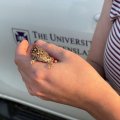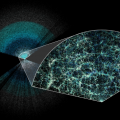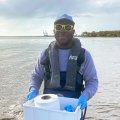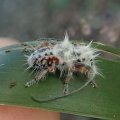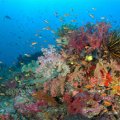A team of researchers has pinpointed a handful of genes that could drive the formation of medulloblastoma, the most aggressive and frequent form of brain tumour found in children.
The team was led by Professor Brandon Wainwright, Dr Laura Genovesi and Dr Melissa Davis from The University of Queensland’s Institute for Molecular Bioscience.
Professor Brandon Wainwright said these genes provided potential targets for treatment.
“Brain tumours are the most common cause of cancer death in children,” Professor Wainwright said.
“Those who do survive often experience significant neurological, intellectual and physical disabilities as a result of their treatment, which involves surgical removal of the tumour followed by radiotherapy and chemotherapy.
“We clearly need more effective and less invasive options to treat medulloblastoma and improve outcomes for both children and adults with this devastating disease.”
There are four different sub-types of medulloblastoma, each with their own molecular signature.
The researchers identified underlying genetic regulatory networks that were present in all of the sub-types, a discovery that Professor Wainwright said was important in advancing treatments.
“We are now searching for existing drugs that may block these gene networks and act as viable treatment alternatives for medulloblastoma.”
The team, which included researchers from Australia, Singapore, Canada, the United Kingdom and the United States, made the discovery after screening 85 tumours.
The results were published this week in the highly prestigious scientific journal Proceedings of the National Academy of Sciences USA.
Subscribers to the journal can access the paper here.
The study was supported by international and Australian funding bodies, including the John Trivett Foundation, the National Health and Medical Research Council and the Australian Research Council.
The John Trivett Foundation is fundraising for a Senior Research Fellow in Brain Cancer at UQ. To donate, please visit https://johntrivettfoundation.org.au or call 07 3346 2134.
The Institute for Molecular Bioscience (IMB) is a research institute of The University of Queensland that aims to improve quality of life by advancing personalised medicine, drug discovery and biotechnology.
Contact: Bronwyn Adams, IMB Communications Manager – 0418 575 247, 07 3346 2134 or b.adams@imb.uq.edu.au

